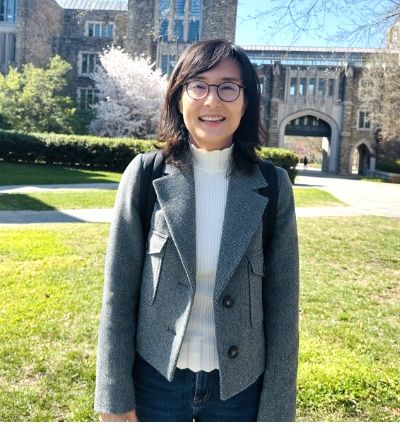Society for East Asian Anthropology

Former cultural anthropology PhD, June Hee Kwon, won a major book award for her first book, Borderland Dreams. Dr. Kwon is an associate professor at Sacramento State.
The Francis H.K. Hsu Book Award committee takes great pleasure in awarding this year’s prize to Dr. June Hee Kwon’s monograph Borderland Dreams: The Transnational Lives of Korean Chinese Workers (Duke University Press). Kwon’s book richly weaves the multidirectional, multilayered, multivocal stories of Korean Chinese migrant workers as they move restlessly between regions, countries, and households in pursuit of dreams of a better life. Those dreams carry the precarity of borderlands in clashing claims to a future of in-betweenness. Migrants often enter South Korea in low-end, dangerous and difficult manual jobs with precarious legal status. Their family relations suffer as they are away for long periods of time, all in the hopes of bettering their futures. The author beautifully renders everything from the personal lives and tribulations of migrants to the way these are impacted by larger structural changes
Importantly, the book situates ethnic migrations within the larger context of transformations in and through East Asia. The author renders macro and micro perspectives through three interactive lenses: 1) ethnicized bodies; 2) transnational money (remittances), and 3) transnational time (waiting). Based on Chinese, Korean, and European language sources and on close fieldwork in multiple places, Kwon’s account traces multiplex tales that are both open-ended and circumscribed within political, economic, and regional structures.
Borderland Dreams makes a wonderful contribution to the literature on migration and borderlands, especially since much of the existing literature often focuses on the global south with respect to North America or Europe. Kwon ably demonstrates not only the cogency, but the necessity, of placing global mobilities at the center of our consideration. This work exemplifies where, how, and why Global Asias matters: as a frame for this elegant ethnography, it yields the yearnings, instabilities, and intimacies constituting borderland dreams.